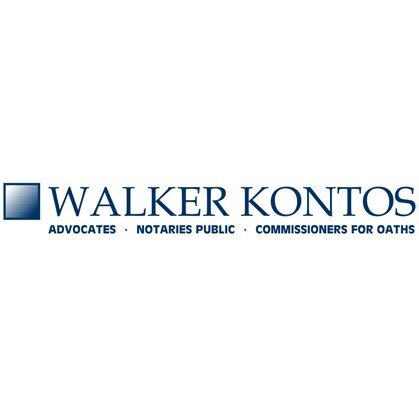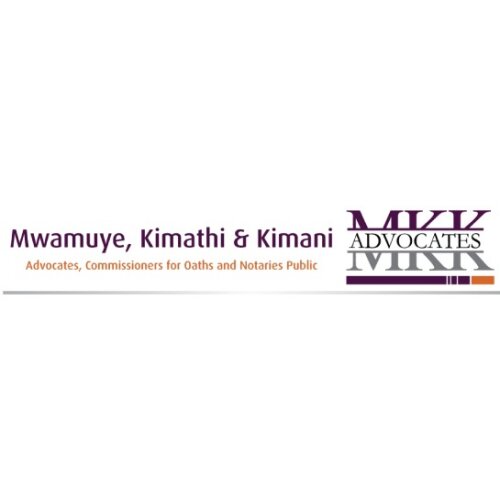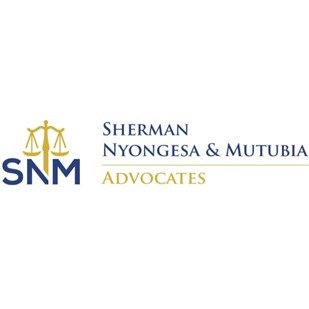Best Public-Private Partnerships (PPP) Lawyers in Nairobi
Share your needs with us, get contacted by law firms.
Free. Takes 2 min.
List of the best lawyers in Nairobi, Kenya
Legal guides written by Adroit Law LLP:
- Kenya Launches Digital Nomad Visa: A Gateway for Remote Workers
- Navigating the Payment System License Maze in Kenya
- Navigating the Complexities of Mining Licenses and Permits in Kenya: A Look into Artisanal and Large-Scale Operations
About Public-Private Partnerships (PPP) Law in Nairobi, Kenya
Public-Private Partnerships, commonly referred to as PPPs, are collaborative agreements between the government and private sector entities for the purpose of financing, constructing, operating, and maintaining infrastructure projects or service delivery. In Nairobi, Kenya, PPPs are frequently used in sectors like transport, energy, healthcare, and education. These partnerships aim to leverage private sector expertise and capital to improve the quality and efficiency of public services and infrastructure.
The legal framework for PPPs in Nairobi is guided by national legislation and regulations, providing structure for how such collaborations can be established, managed, and regulated. Whether you are a private investor, a consortium, or a public institution, understanding the fundamentals of PPP law is essential for ensuring compliance, protecting your interests, and achieving project success.
Why You May Need a Lawyer
PPPs typically involve complex contractual, regulatory, and financial considerations. Engaging a lawyer experienced in PPPs is beneficial in several scenarios:
- Drafting and reviewing PPP agreements to ensure your interests are appropriately addressed
- Interpreting and complying with Kenyan PPP regulations and procurement procedures
- Advising on bid preparation, submission, and project financing structures
- Navigating risk allocation, guarantees, and dispute resolution mechanisms
- Understanding tax implications, land rights, and environmental regulations associated with the project
- Responding to regulatory audits, government inquiries, or allegations of non-compliance
- Managing relationships and negotiations between public and private stakeholders
Given the long-term nature of most PPP contracts, legal support helps anticipate and mitigate risks throughout the lifespan of the project.
Local Laws Overview
PPPs in Nairobi are primarily governed by the Public Private Partnerships Act, 2021, as well as sector-specific regulations and national procurement laws. The key aspects of local laws relating to PPPs include:
- PPP Approval Process: PPP projects in Kenya require approval from the Public Private Partnerships Committee and must adhere to strict assessment and approval procedures.
- Procurement: PPP agreements are subject to open and competitive procurement processes to ensure transparency and value for money.
- Risk Sharing: PPP contracts must clearly allocate risks between public and private parties, including construction, operational, and demand risks.
- Contract Management: There are requirements for monitoring, reporting, and renegotiation of PPP contracts to ensure ongoing compliance and effective service delivery.
- Dispute Resolution: PPP contracts often specify arbitration or other alternative dispute resolution methods as preferred mechanisms for resolving disagreements.
- Sectors Covered: The PPP Act allows PPP arrangements across several public sectors, subject to regulatory oversight.
- Land Use and Environment: Adherence to Kenya’s land and environmental regulations is mandatory for all PPP projects in Nairobi.
- Local Content Requirements: PPP projects may need to comply with laws advocating for the use of local materials, services, and labor.
Frequently Asked Questions
What is a Public-Private Partnership (PPP)?
A Public-Private Partnership is a contractual arrangement where a government entity collaborates with private sector partners to finance, build, operate, or maintain a public project or service.
Which law governs PPPs in Nairobi?
The primary law is the Public Private Partnerships Act, 2021 along with relevant regulations and sector-specific laws.
Who can initiate a PPP project in Nairobi?
Government agencies, county governments, and private sector entities can propose PPP projects, subject to approval under the legal framework.
What types of projects are suitable for PPPs?
Sectors such as transportation, energy, water supply, healthcare, education, and housing are common areas where PPPs are utilized in Nairobi.
How are PPP projects procured in Nairobi?
PPP projects typically follow an open and competitive procurement process to select the best qualified private partner.
How long do PPP contracts last?
PPP contracts can range from a few years to several decades, dependent on the nature of the project and the agreement terms.
What risks are involved in PPP projects?
Risks can include construction delays, cost overruns, revenue shortfalls, regulatory changes, and unforeseen operational challenges.
What are the dispute resolution options in PPPs?
Disputes are often resolved through negotiation, mediation, or arbitration as specified in the PPP agreement.
How is land acquired for PPP projects?
Land acquisition must comply with Kenyan law, often involving public notification, compensation to affected parties, and environmental impact assessments.
Do PPPs offer incentives to private investors?
Yes, PPPs may provide incentives such as tax breaks, government guarantees, or access to public funding to attract private investment.
Additional Resources
Those seeking further information or legal assistance on PPPs in Nairobi can consult the following resources:
- Public Private Partnerships Directorate - National Treasury and Planning
- Public Private Partnerships Committee (Under the National Treasury)
- Kenya Law Reports for legislation and regulations related to PPPs
- Kenya Investment Authority (KenInvest) for investor guidance
- County government offices for local PPP initiatives in Nairobi
- Professional legal associations and law firms specializing in infrastructure and project finance
Next Steps
If you are considering entering into a PPP arrangement in Nairobi, begin by:
- Identifying your role in the PPP (public or private partner) and clarifying your objectives
- Gathering all relevant project documentation and information
- Consulting with legal professionals experienced in PPP law and practice in Kenya
- Engaging early with regulatory authorities and PPP units for guidance on processes and approvals
- Ensuring compliance with procurement, land use, and environmental requirements
- Assessing financial, technical, and legal risks with assistance from advisors
Legal representation is crucial from the concept stage through contract negotiation, project implementation, and dispute resolution. Contact a qualified PPP lawyer to ensure your interests are safeguarded at every stage of the process.
Lawzana helps you find the best lawyers and law firms in Nairobi through a curated and pre-screened list of qualified legal professionals. Our platform offers rankings and detailed profiles of attorneys and law firms, allowing you to compare based on practice areas, including Public-Private Partnerships (PPP), experience, and client feedback.
Each profile includes a description of the firm's areas of practice, client reviews, team members and partners, year of establishment, spoken languages, office locations, contact information, social media presence, and any published articles or resources. Most firms on our platform speak English and are experienced in both local and international legal matters.
Get a quote from top-rated law firms in Nairobi, Kenya — quickly, securely, and without unnecessary hassle.
Disclaimer:
The information provided on this page is for general informational purposes only and does not constitute legal advice. While we strive to ensure the accuracy and relevance of the content, legal information may change over time, and interpretations of the law can vary. You should always consult with a qualified legal professional for advice specific to your situation.
We disclaim all liability for actions taken or not taken based on the content of this page. If you believe any information is incorrect or outdated, please contact us, and we will review and update it where appropriate.

















